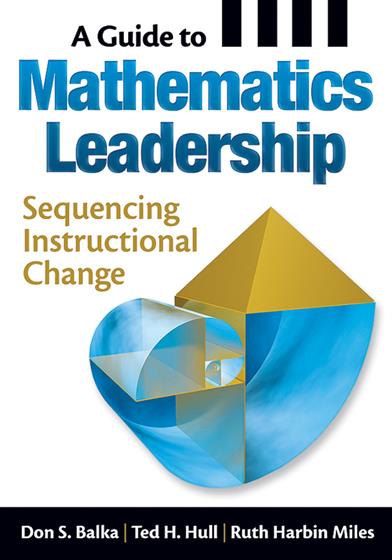
Hands-on, Practical Guidance for Educators
From math,
literacy, equity, multilingual learners, and SEL, to assessment, school counseling,
and education leadership, our books are research-based and authored by experts
on topics most relevant to what educators are facing today.
A Guide to Mathematics Leadership
Empower mathematics educators and learners to meet and exceed high expectations!
This process-based approach to building a high-quality mathematics program is based on five principles from the National Council of Teachers of Mathematics—equity, curriculum, teaching, learning, and assessment—and four leadership principles from the National Council of Supervisors of Mathematics—equity leadership, teaching and learning leadership, curriculum leadership, and assessment leadership. Mathematics leaders will learn how to apply the principles to each phase of the program improvement cycle:
- Articulating the curriculum
- Implementing the curriculum
- Incorporating effective instructional strategies
- Providing timely and targeted feedback
- Establishing professional learning communities
- Fostering professional development
- Grade Level: K-12
- ISBN: 9781412975438
- Published By: Corwin
- Year: 2009
- Page Count: 176
- Publication date: January 17, 2010




